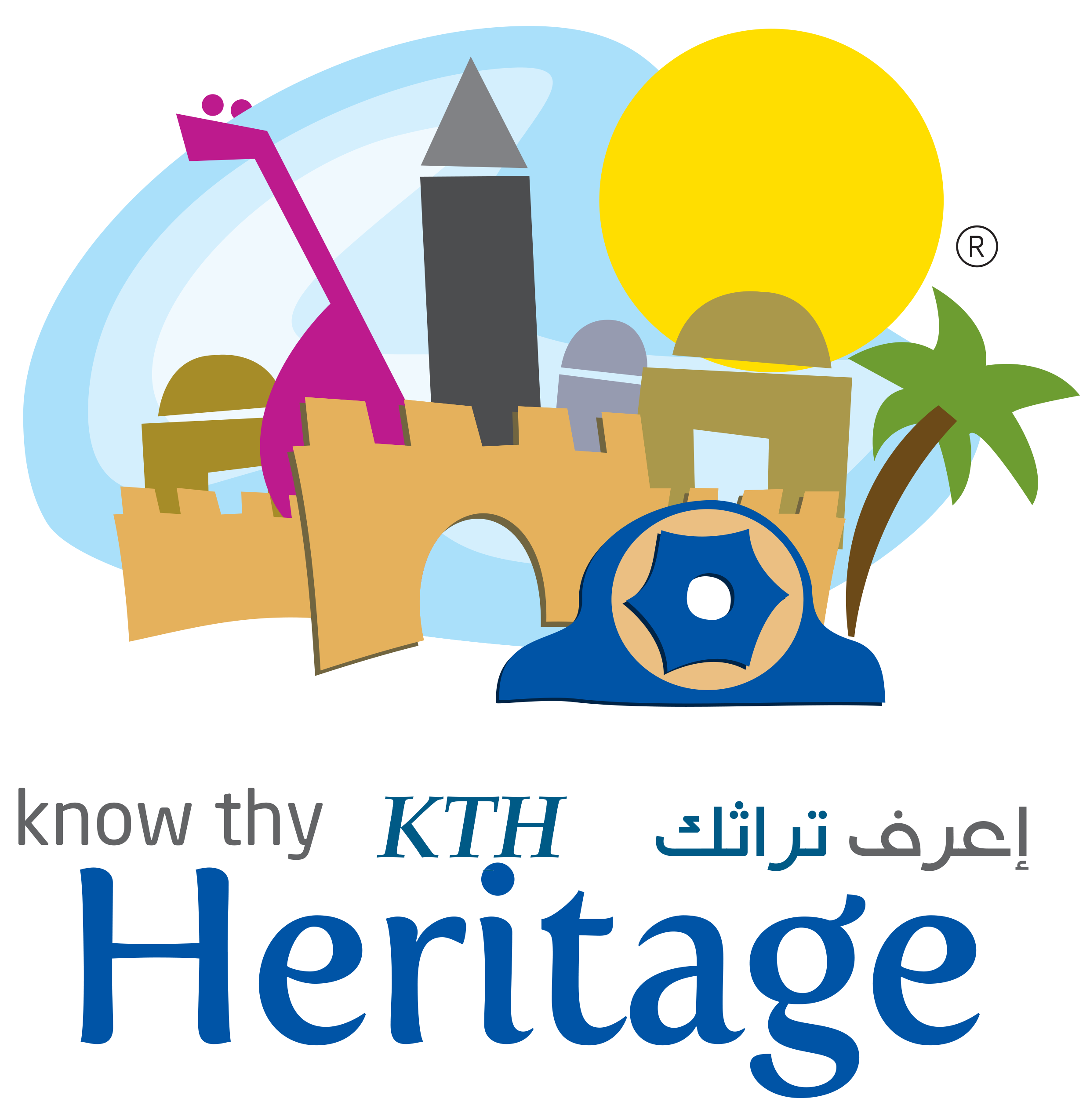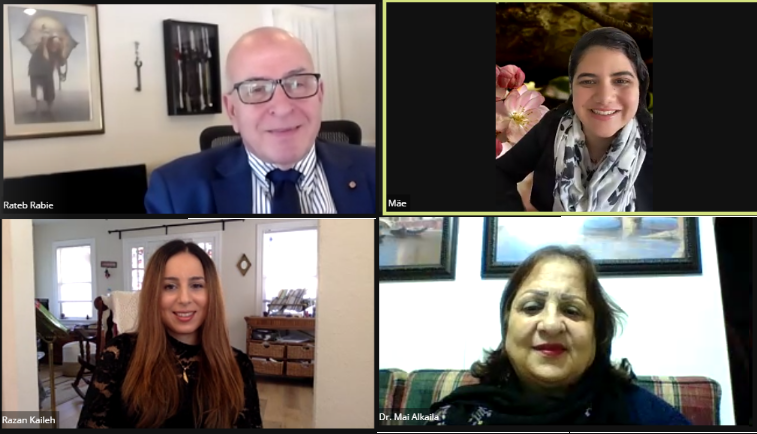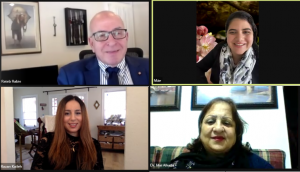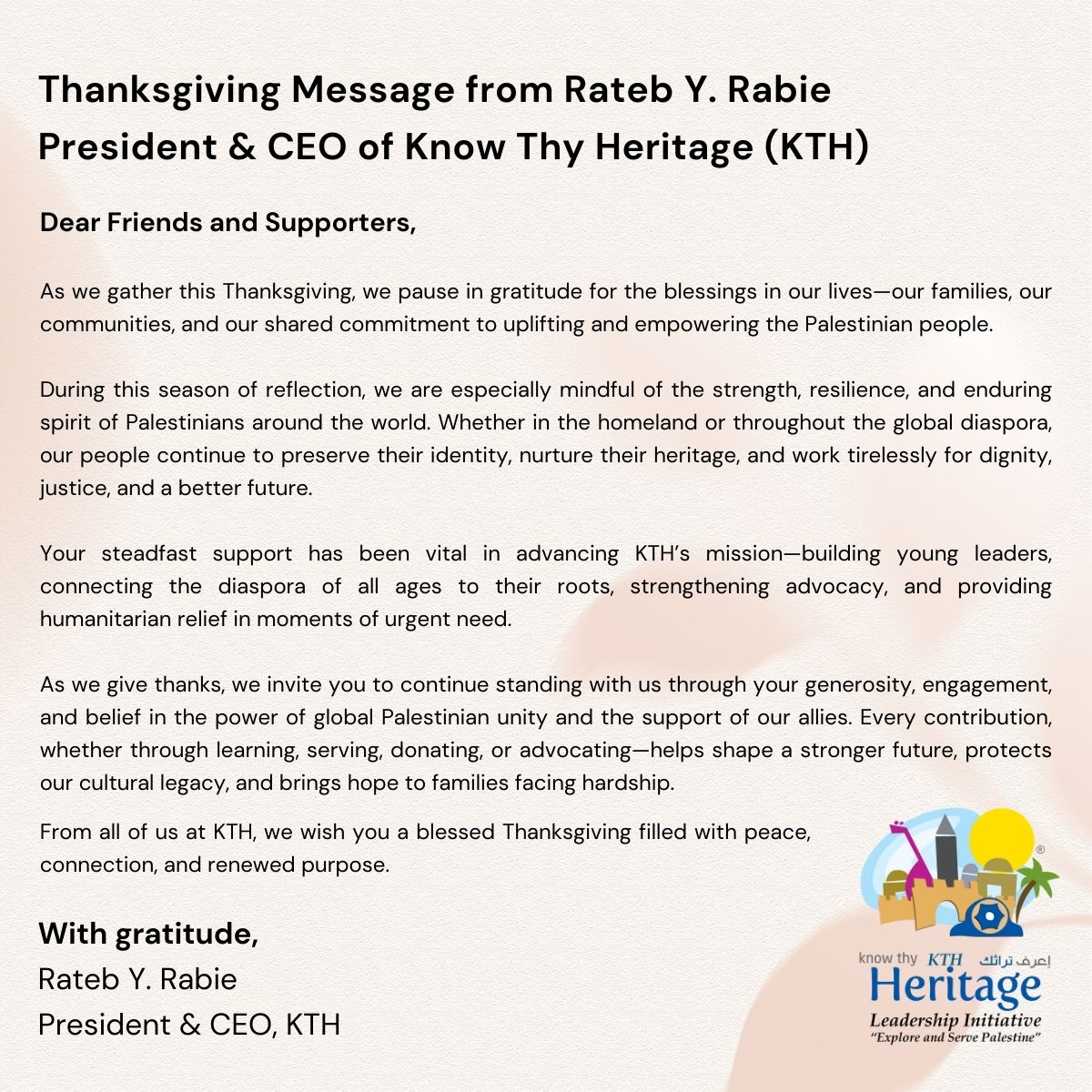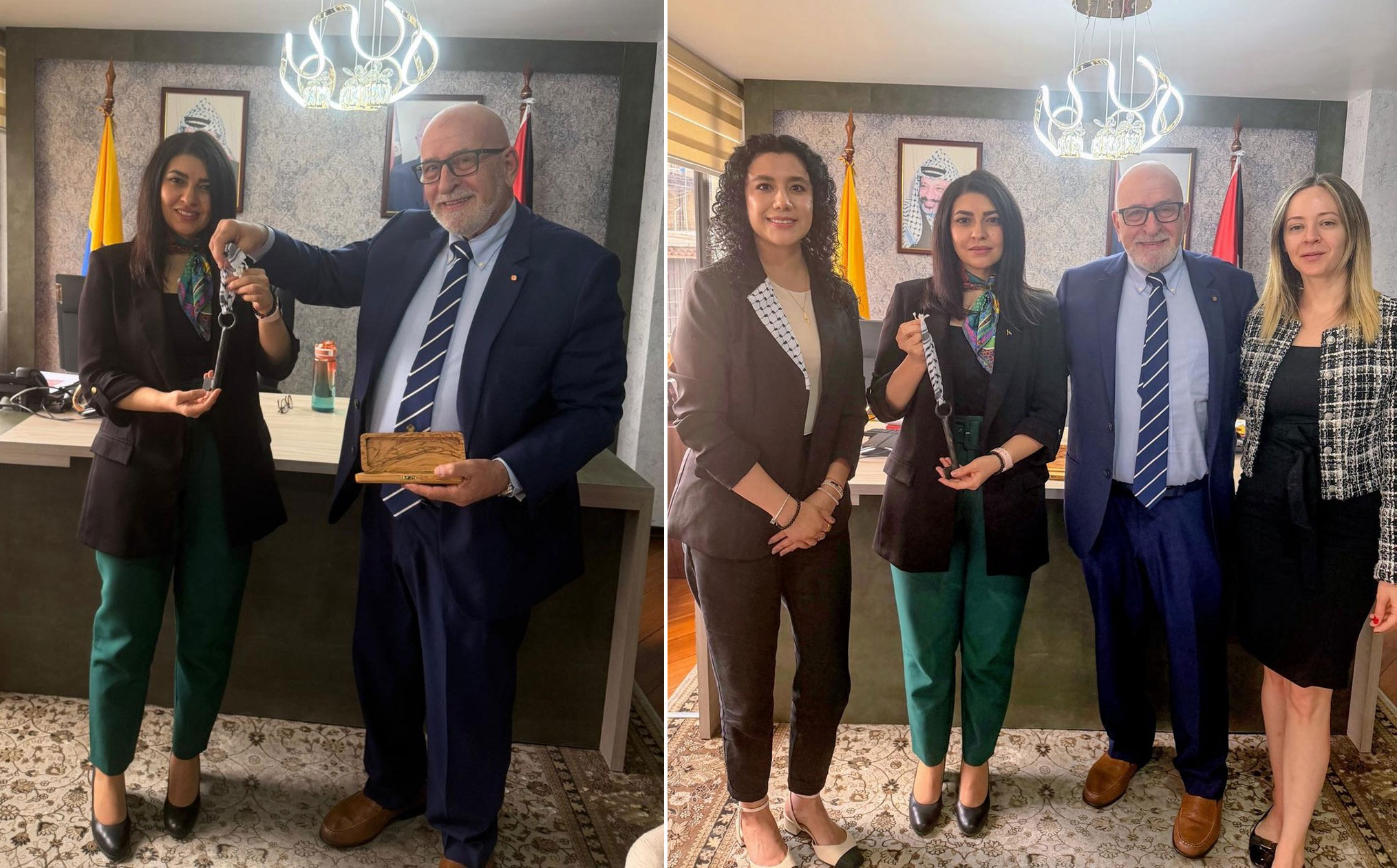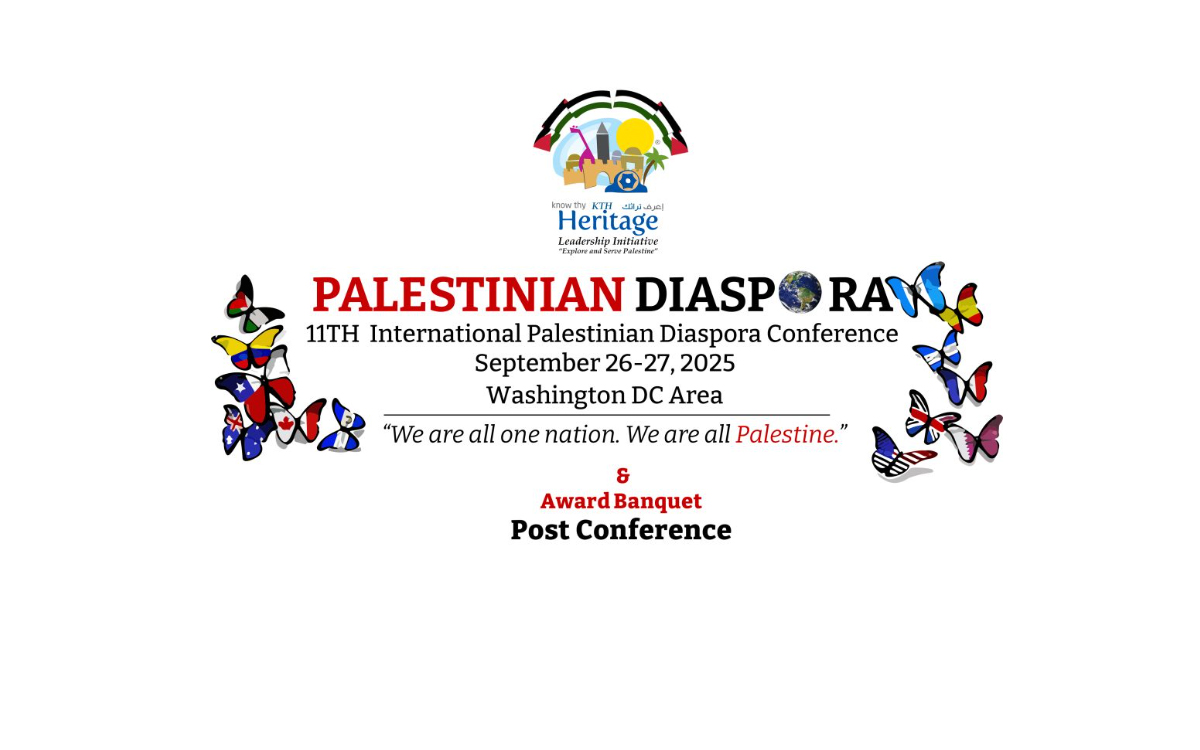Double Pandemic: Palestine fights COVID-19 while in Occupation, Conversation with Her Excellency Dr. Mai Kaileh, Palestinian Minister of Health.
Double Pandemic: Palestine fights COVID-19 while in Occupation
Conversation with Her Excellency Dr. Mai Kaileh, Palestinian Minister of Health.
“We are strong, in both combating the pandemic of COVID-19 and the pandemic of occupation” were Dr. Mai Kailah’s opening remarks during the Know They Heritage’s (KTH) Virtual Conference on the COVID-19 Situation in Palestine last Sunday.
Dr. Kaileh walked the audience through the evolution of COVID-19 since its inception in March 2020. Her presentation focused on the main policies, challenges, and constraints still present in Palestine.
Under the leadership of Dr. Kailah the Ministry of Health (MOH) is executing a COVID-19 Readiness National Strategic Plan that prioritizes the continuity of essential health services for Palestinians while ensuring preventive and diagnostic services for COVID-19 and strengthening the broader health system’s readiness as the pandemic evolves. For additional insights, check out Dr. Kailah’s presentation here.
Other core health readiness elements within the strategic plan include a thorough electronic surveillance system, a designated unit within the MOH to extend virtual and in-person physical and mental health services to Palestinians, as well as health education and community awareness efforts to prevent and combat the spread of the deadly disease.
The main health providers include the Palestinian Ministry of Health (MOH), the United Nations Relief and Works Agency for Palestine Refugees in the Near East (UNRWA), non-governmental organizations (NGOs), and the private sector. NGOs and the private sector have been instrumental in operationalizing new COVID-19-specific treatment centers aside from the established centers serving communities pre-pandemic. Other stakeholders such as the United Nations Development Programme (UNDP) and the World Bank (Germany) have provided resources to expand the current health workforce across the 749 Primary Heath Care Centers operating in Palestine.
The MOH estimates that 3 million Palestinians should have access to vaccination to reach herd immunity. Understanding the current occupation Palestine is subject to is key in contextualizing the COVID-10 vaccination outlook in Palestine. “While Palestine was not getting a single vaccine dose, Israel had 8-million doses. We consider this an issue the International Community should look at, we are not alone, we are surrounded by friends and solidarity all over the world, and we need to continue to secure the vaccine doses and fight against medical apartheid” underlined Dr. Kailah.
Particularly in Gaza, which is permanently under siege, the occupation translates to difficulties enforcing social distancing measures given the high density of population. There are also significant shortages of hospital beds and specialized medical staff.
Throughout the conference, Dr. Kailah stressed the importance and significant role of the Palestinian community “Palestinians in the diaspora have been incredibly supportive, all the way from Australia to Chile, and especially in North America” highlighted Dr. Kailah “we are relying on their support, Palestinians by blood or heart to help our ongoing fundraising efforts.”
Mr. Rateb Rabie, KTH President commented “Dr. Kaileh delivered comprehensive, educational, Inspiring presentation detailing the work of the Palestinian Health sector in service of the Palestinians, matching the work of World Health Organization (WHO), the Center for Disease Control and Prevention (CDC) and other international health organizations” Mr. Rabie continued his comment by announcing the creation of the KTH Health Committee, Chaired by Dr. Razan Kaileh, who was the moderator during the virtual conference. The Health Committee will coordinate relief efforts in line with the Palestinian MOHs strategic plan.
Dr. Kaileh, who recently received the Women of Decade in Public Life and Leadership Award, delivered an inspiring message to all the female changemakers towards the end of the virtual conference “be strong, let us continue our work and develop ourselves” she said, “because we can still do so much for Palestine and humanity.”
KTH is proud to serve as an institution that creates a perpetual link between diaspora, supporters, and Palestine to preserve and enhance Palestinian advocacy, businesses, heritage, and culture. To support this mission, KTH will be holding ongoing virtual discussions and workshops to convene key stakeholders and operationalize concrete support strategies for Palestine. KTH also extends its gratitude to the KTH alumni network, comprised of over 300 young professionals from 20 countries within the Palestinian diaspora. More information on upcoming activities can be found at www.kthps.org. General inquiries can also be made through kth@kthps.org.
Written by: Mae Kafati, KTH Alumni 2015
